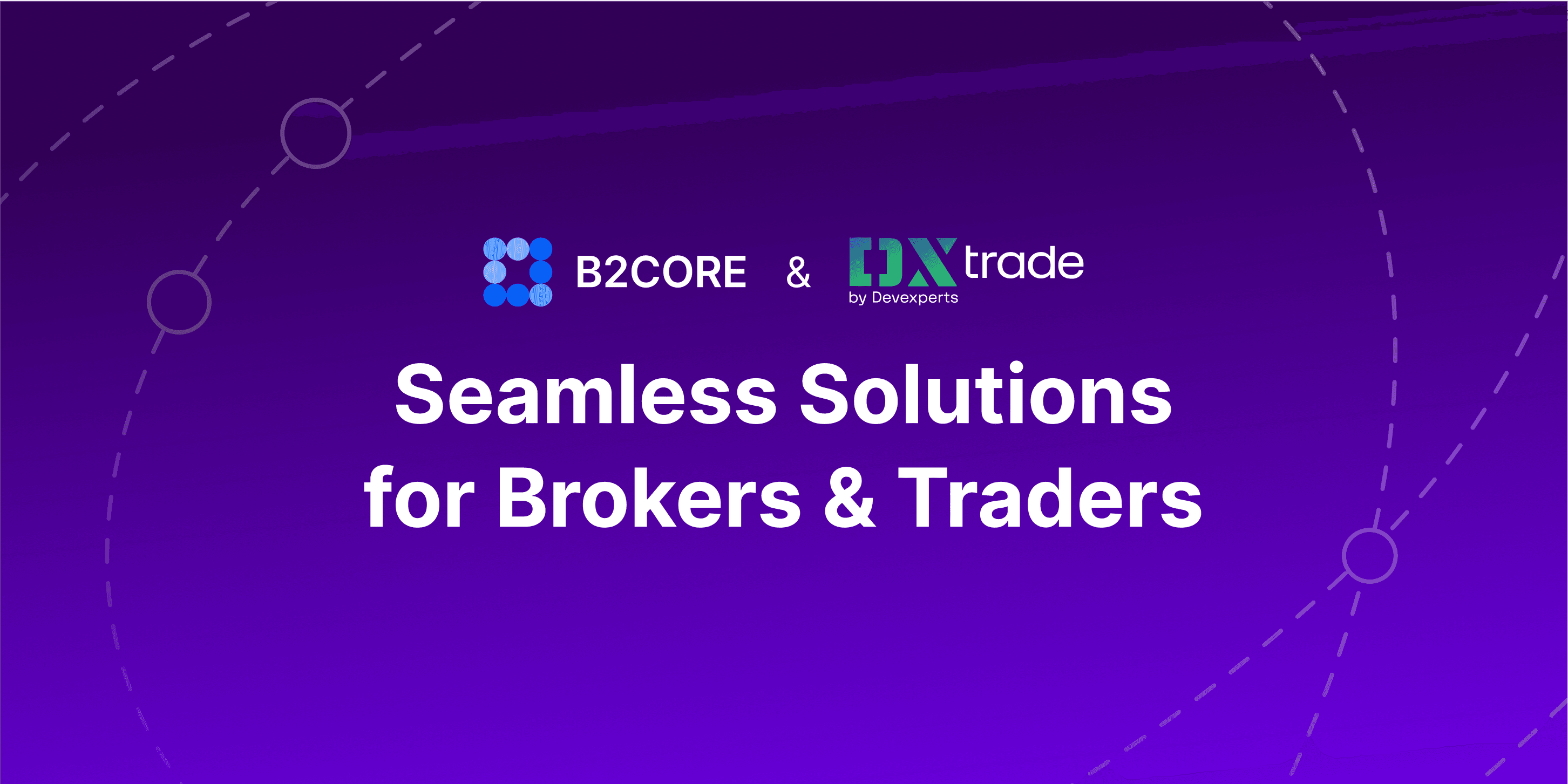Share
0
/5
(
0
)
As of today, one of the simplest and smartest ways to enter the financial market and offer your clients brokerage services is to become an Introducing Broker (IB). IB programs offer interested players plenty of opportunities to grow their customer base and earn via various reward schemes. But what is an IB really responsible for? In this article, we'll explore the role of introducing brokers in detail, examine how they work and what benefits introducing brokers gain from the IB program.
What is an Introducing Broker? What Are Their Duties?
An Introducing Broker is a type of broker whose primary mission is to attract as many customers as possible to the main brokerage. An IB acts as an intermediary between investors and a broker and is usually not involved in actual transactions. Trades are executed by the brokerage with which the introducing broker is associated.
Instead, IBs provide investors with valuable services — they help customers find the best investment products, offer advice on trades, manage risks, and provide customer service. The main broker provides IB partners with all necessary software, support, advice, and directions for attracting clients.
Introducing brokers typically make money through referral fees, commissions, or other rewards earned when their clients open accounts with the main broker and start trading. The IB is usually rewarded according to the number of customers they bring in.
IB businesses offer many benefits, but there may also be some drawbacks. As an IB, you do not have the same degree of independence as a standard broker does. Additionally, since you are promoting an existing brokerage firm, you don't have full control over trading services or operations, which can limit your potential profits and hinder your growth as a broker.
IBs and Affiliates: What's the Difference?
Affiliates and IBs both refer customers to the main broker. However, there is a key distinction between these two schemes.
Affiliates are responsible for creating affiliate websites or links in order to refer new clients. Once this is done, their obligations are fulfilled. Thus, their job is to distribute the key message of the main brokerage. In certain circumstances, affiliates may have the opportunity to upgrade to an introducing broker. At this point, they will have additional responsibilities.
Introducing brokers, on the other hand, are responsible for providing a wide range of services to customers. They bring in new clients through marketing but also create an in-depth, long-term relationship with them and provide support. This relationship often involves providing consultations, advice on investments, etc.
How Do Introducing Brokers Benefit from the Partnership?
IB programs offer a range of serious advantages to the company owner:
Expanding a Business
Trading on financial markets has become a global phenomenon today, which attracts not only experienced investors but also those who are just starting out and may have limited knowledge about financial investing. For experts in the field, becoming an introducing broker provides an opportunity to gain financial freedom and create a prosperous career by introducing new traders to the market.
By becoming an introducing broker, you can expand your business to offer a wide range of services, such as portfolio management and financial advice. This will not only help you generate more profits but also enable you to build strong relationships with customers.
Generating Income
As an introducing broker, you gain great revenue flexibility, as you can choose the reward model that best suits your goals from a variety of options, such as revenue share and CPA (cost per acquisition). The more active traders will join the community, the higher your reward will be. Here are some of the most common revenue models of IB programs:
Cost Per Acquisition (CPA)
Cost per acquisition is a model in which a partner receives payment when a customer clicks on an ad, banner, or link and completes an action leading them to a certain page.
Cost Per Lead (CPL)
The IB gets this type of commission once a customer has completed the registration process or filled out a dedicated form.
Revenue Sharing
Revenue-share model is a commission arrangement in which a partner receives a portion of the commission from clients' successful transactions. This model rewards partners based on how active referred customers are, meaning that the more they trade, the higher commissions introducing brokers can receive.
Some IB partnership programs offer a multi-tier approach that enables IBs not only to recommend services to clients but also to recruit other affiliates who can refer their own customers and generate commissions. This allows for an expansive network that can generate consistent income around the clock.
Training Opportunities
Introducing brokers can benefit from training programs offered by brokerage houses to stay up-to-date with the latest market trends. These courses provide an excellent opportunity to sharpen IBs' knowledge and abilities, allowing them to serve their clients better.
Access to the Best Software
Introducing brokers have the opportunity to access software and operating systems provided by the main broker. This helps save time on setting up their own platform, allowing them to focus more of their energies on growing their business.
In addition, IBs can benefit from additional support in terms of advertising materials and marketing resources that greatly facilitate the process of acquiring new customers.
How to Become an Introducing Broker
Understand the Market
First of all, an introducing broker must have a comprehensive understanding of the financial markets and the risks associated with them. They need to be familiar with laws governing the sphere, as well as how investments work, so that they can advise potential clients on the best options for them.
Take Care of the Basics
Create a plan of action that includes details on how you plan to acquire customers, what products and services you want to offer, and how you will grow your business. This is essential for any successful business entity.
Find a Partner
Before becoming an IB, it is important to research the specific requirements of the broker-dealer you are interested in representing. These can include licensing and registration requirements, financial qualifications, as well as additional training requirements. Make sure that you meet all of these criteria before officially becoming an IB for any broker-dealer.
It is essential to evaluate different brokers' trading fees, customer service, product range, and other critical aspects. Additionally, consider if the broker has any specific prerequisites, such as a certain level of capital you will need to have before becoming an IB. If you carefully evaluate these points, you can ensure that the broker-dealer you choose is the most suitable for your financial needs.
Obtain the Necessary Licenses
In order to become an introducing broker, it is recommended to obtain a license from the appropriate regulatory body. The majority of jurisdictions do not require licenses for IBs today; however, government agencies are considering regulating the sphere more tightly. In addition, clients prefer to deal with trusted and reliable counterparties. Upon obtaining your license, you will need to submit a comprehensive application package that will be reviewed by the local regulator. There are often different requirements in different countries, so it is important to make sure you are compliant with all local laws.
Once the application is approved, you will need to open a bank account for your business and keep proper financial records. Also, you may need a platform or a website, though your partner may provide one for you.
Build Your Clientele
Developing strong relationships with clients and providing outstanding customer service is integral to the success of an IB. You can network at trade shows and events, start a website or social media page, cold call potential customers, and reach out to those who may be interested in investing. Additionally, you must keep track of market changes and inform your clients of any news that may impact their portfolios. By doing this, you will ensure that your clients stay loyal and rely on you to manage their investments.
Conclusion
Introducing broker programs offer a great opportunity for brokers, clients, and brokerage houses to benefit from the potential these programs have to offer. IBs can increase their earnings by referring clients to a specific brokerage house, and the brokerage house can benefit from an influx of new clients. In addition, clients have access to a wide variety of services that can help them make informed decisions about their investments.
Introducing brokerages provide individuals with the opportunity to make a career out of trading and investing. To become an introducing broker, it is important to understand the market, choose a reputable partner, obtain licenses and build a loyal client base. Although it requires time, effort, and dedication, becoming a successful IB can be very rewarding.
Read also





